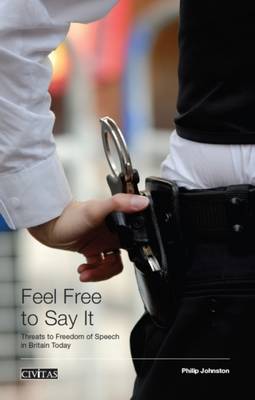For hundreds of years, British people have taken freedom of speech for granted. We always felt that we didn't need a First Amendment, because speaking your mind without fear or favour was ingrained in our institutional genes. But no longer. More people are being jailed or arrested in Britain today for what they think, believe and say than at any time since the eighteenth century. They didn't set out to be martyrs to free speech, but they didn't understand the rules governing what can and can't be said. Some are poorly educated; some are deeply religious; some used social networking media to make remarks whilst under the influence of alcohol. They fell foul of Section 5 of the Public Order Act or the laws against 'hate speech' or of the somewhat cavalier use of communications legislation ill suited to the digital age.
Cases include the Christian housing worker who had his salary cut by 40% for saying that marriage is between a man and a woman; the woman fined GBP110 for calling her neighbour a 'stupid, fat, Australian bitch' when she came from New Zealand; the guest house owners who lost their business when a woman claimed they had insulted her religion; the Oxford student who spent a night in the cells after asking a police officer if his horse was gay; and the teenager who was convicted of causing alarm and distress to two Labradors when he barked at them ('The dogs weren't really upset by it at all' according to their owner). Philip Johnston puts the current debate about the limits of free speech into a historical context to show that free speech is not an optional extra for a free society: it is and always has been the defining condition of a free person.
- ISBN10 1906837503
- ISBN13 9781906837501
- Publish Date 25 March 2013
- Publish Status Out of Print
- Out of Print 9 March 2016
- Publish Country GB
- Imprint Civitas
- Format Paperback
- Pages 83
- Language English
